
Marcel Reich-Ranicki was a Polish-born German literary critic and member of the literary group Gruppe 47. He was regarded as one of the most influential contemporary literary critics in the field of German literature and has often been called Literaturpapst in Germany.
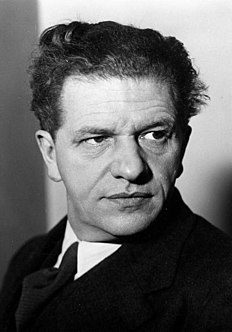
Hanns Johst was a German poet and playwright, directly aligned with National Socialist philosophy, as a member of the officially approved writers’ organisations in the Third Reich. The statement “When I hear the word culture, I reach for my gun”, variously misattributed to Heinrich Himmler, Joseph Goebbels and Hermann Göring, was in fact a corrupted version of a line in his play Schlageter.
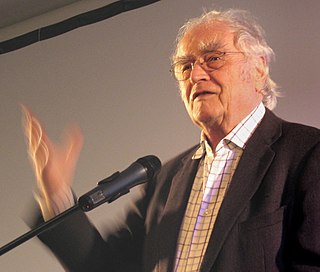
Martin Walser is a German writer.

Raimund Pretzel, better known by his pseudonym Sebastian Haffner, was a German journalist and historian. As a wartime émigré in Britain, Haffner argued that an accommodation was impossible not only with Hitler but also with the German Reich with which Hitler had gambled. Peace could be secured only by rolling back "seventy-five years of German history" and restoring Germany to a network of smaller states.

Thor Kunkel, a German author, was born in Frankfurt am Main on 2 September 1963. Kunkel claims to have spent his youth associating with drug friends and American soldiers stationed in the then West Germany. In 1981, on a scholarship to the United States, he enrolled in the creative writing programme of the San Francisco Art Institute.
Die Rote Fahne was a German newspaper originally founded in 1876 by Socialist Worker's party leader Wilhelm Hasselmann, and which has been since published on and off, at times underground, by German Socialists and Communists. Karl Liebknecht and Rosa Luxemburg famously published it in 1918 as organ of the Spartacus League.
Friedrich Blume was professor of musicology at the University of Kiel from 1938–1958. He was a student in Munich, Berlin and Leipzig, and taught in the last two of these for some years before being called to the chair in Kiel. His early studies were on Lutheran church music, including several books on J.S. Bach, but broadened his interests considerably later. Among his prominent works were chief editor of the collected Praetorius edition, and he also edited the important Eulenburg scores of the major Mozart Piano Concertos. From 1949 he was involved in the planning and writing of Die Musik in Geschichte und Gegenwart. Coincidentally he died within a few weeks of another prominent Mozart musicologist, Cuthbert Girdlestone, and was thus almost his exact contemporary.
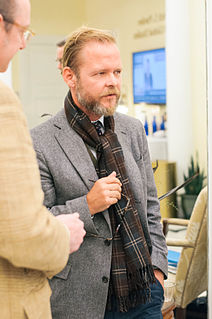
Christian Kracht is a Swiss novelist and journalist.
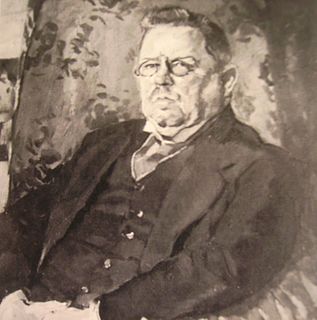
Max Halbe was a German dramatist and main exponent of Naturalism.

Richard David Precht is a German philosopher and author of successful popular science books about philosophical issues. He hosts the TV show "Precht" on ZDF.
Jutta Richter is a German author of children's and youth literature.

Irina Korschunow was a German writer. Her oeuvre comprises short stories, novels theatrical works and film scripts. Born in Stendal, she started her career as a journalist and writer for children's books and young adult literature but focused predominantly on writing novels in her later years since about 1983. She was also a translator.
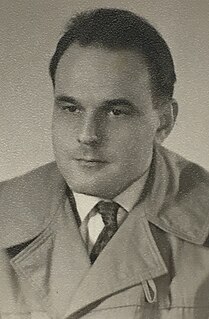
Gert Ledig, full name Robert Gerhard Ledig, was a German writer.
Siegfried Obermeier was a German author of historical novels and popular history books. He was editor of The Secret Diaries of Ludwig II of Bavaria 1976. In 1978 he issued his first novel, initially under the penname Carl de Scott, a novelisation of the second life of Judas Iscariot. His Jesus in India book "Starb Jesus in Kaschmir?" made it to the Year Bestseller List of the Spiegel in 1983.

Jürgen Neffe is a German writer.
Blanvalet is a German publishing house, based in Munich, which was founded in 1935 in Berlin and is now part of the Bertelsmann's Random House publishing group. Blanvalet publishes entertainment literature and non-fiction, first in hardcover, and as paperbacks since 1998. The publisher became well known with the novel series "Angélique". More recent authors include Charlotte Link, Marc Elsberg, Karin Slaughter, Diana Gabaldon and George R. R. Martin.
Hanns Christian Löhr is a German historian.
Fred K. Prieberg was a German musicologist. He was a pioneer in the field of history of music and musicians under the Nazi regime.
Rudolf Gerber was a German musicologist. He was professor and director of the musicology department of the University of Gießen and from 1943 professor of musicology at the University of Göttingen.
Wolfgang Boetticher was a German musicologist and longtime lecturer at the University of Göttingen.











